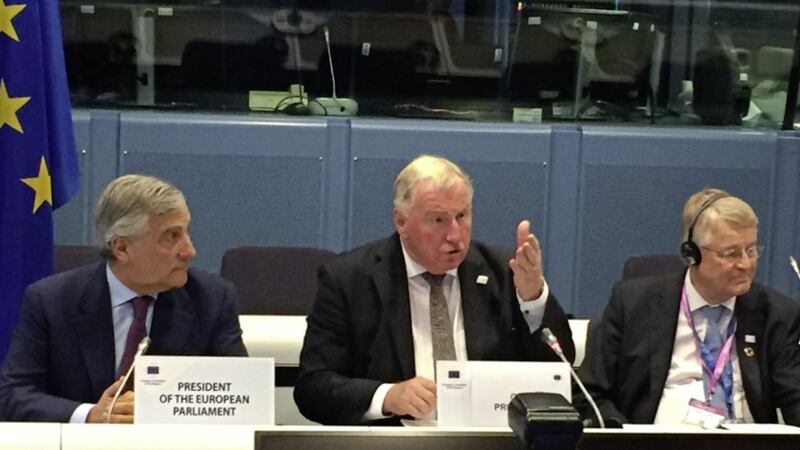THE cash pipeline from Europe into Northern Ireland will continue until at least 2023 - more than four years after Brexit.
As the DUP sought further clarity on extricating the north from the EU, Brussels officials confirmed yesterday their focus is ensuring UK regions pocket every last cent pledged in programmes designed to bolster the overall competitiveness of the economy.
Structural funds, which are seen as the visible hand of the EU and are delivered through the principle of match funding, have contributed £5.9 million to tourism projects for Giant’s Causeway and an additional £15.9 million to support the’s growing filming industry, including supporting the production of Game of Thrones in Belfast.
In addition the European Regional Development Fund (ERDF) targets investment in R&D technology transfer and offers a mix of grant and financial instruments to support Northern Ireland SMEs.
As part of the programme going forward, some €113 million (just shy of £100m at current exchange rates) will be invested to increase R&D in the north, with the aim of doubling the number of high growth SMEs to 1,300 in 2023 and to assist 200 local companies to engage in R&D activity for the first time.
More than €135 million (£118m) will be used to increase the competitiveness of SMEs, helping them to access capital through a mix of grant and financial instruments.
Over 6,000 companies will be receiving financial and non?financial support and 2,800 jobs should be created, while some €60m (£52.5m) in private investments are expected to match the public spending.
And to promote the low-carbon economy, the electricity grid will be updated, with almost €47m (£41.2m) in investments to accommodate more renewable energy generation over the short to medium-term.
This investment will support the increase from 19.5 per cent to 40 per cent of electricity consumption in Northern Ireland to be generated from renewable sources by 2020, and to maintain this level of consumption through to 2023.
On future funding an EU official told the Irish News: "The current seven-year budget was passed in 2014 when the UK was a full member state. As of now, it remains that full member state.
"All the programmes have been agreed, funds will still be allocated at the start of 2019 and 2020, and the money will be drawn down until 2023."
He added: "Northern Ireland has been quite smart in absorbing and using the funds. Finding the matching funding has rarely been a problem."
The Eurocrats gave the figures in briefings to journalists during the European Week of Regions and Cities, the world's largest gathering of local and regional stakeholders and is the EU's biggest gig of the year.
At present Europe's number-crunchers are devising the next seven-year budget from 2021 to 2027, based on the UK still being part of the 28 member states. But post-March 29 next, and depending on the complex EU divorce bill settlement and ongoing negotiations, that cheque from Brussels to Treasury might yet go unsigned.
Meawnhile European Parliament president, Antonio Tajani was among those present for the Committee of the Regions president Karl-Heinz Lambertz's "state of the union" address to delegates in Brussels.
And a theme of the week so far, Brexit was effectively a dirty word at the top table, meriting just one passing reference in Belgian Lambertz's wide-ranging 30-minute address.
He said: "There are budget constraints, there is Brexit and there are member states who baulk at contributing to the European effort.
"This is creating great uncertainty at a time when Europeans need prospects for the future."


